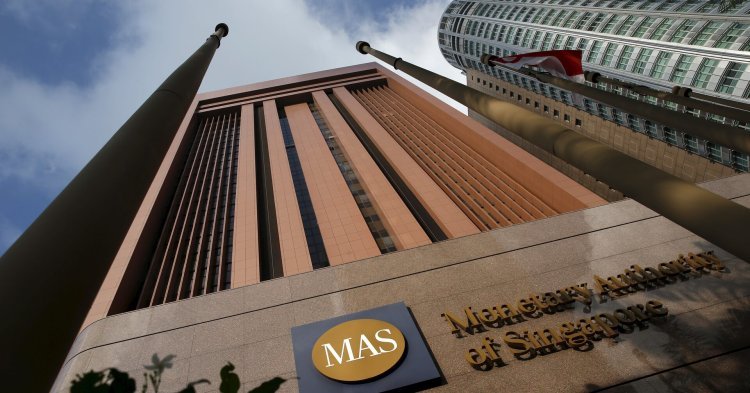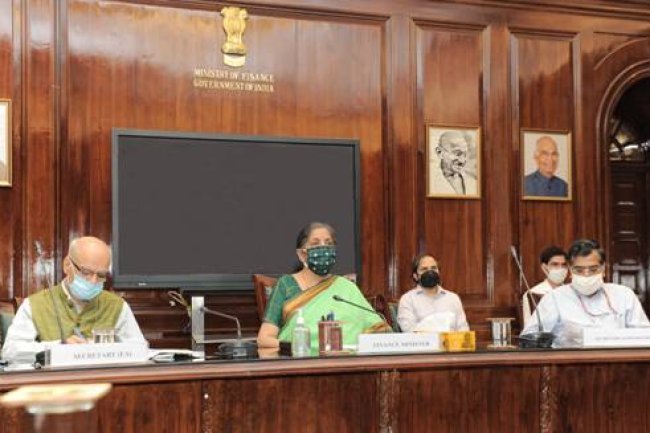Singapore Central Bank Expected to Maintain Monetary Policy Amid Ongoing Inflation Risks and Growth Uncertainty
The Monetary Authority of Singapore is expected to maintain its monetary policy in the upcoming review amid persistent inflation and global growth concerns. Analysts predict no immediate changes, despite global rate cuts, as Singapore focuses on economic stability.

Singapore Central Bank Expected to Maintain Monetary Policy Amid Ongoing Inflation Risks and Growth Uncertainty
Singapore's central bank, the Monetary Authority of Singapore (MAS), is likely to maintain its current monetary policy in the upcoming review, amid persistent inflation and global growth uncertainties. Of the 10 analysts surveyed by Reuters, nine predict that MAS will keep its settings unchanged, opting for stability in the face of geopolitical tensions and volatile commodity prices.
Denise Cheok, an economist at Moody’s Analytics, noted that rising oil prices, driven by geopolitical unrest in the Middle East, along with ongoing extreme weather events, continue to pressure food prices, which remain elevated compared to pre-pandemic levels. "We anticipate that MAS will maintain its current stance in the near term but may reduce the slope of the Singapore dollar nominal effective exchange rate (S$NEER) policy band in the first half of next year," Cheok explained. She added that a more significant adjustment, such as lowering the midpoint of the policy band, could occur in the second half of 2025 if imported inflation shows a consistent downward trend.
While core inflation in Singapore has cooled from its peak of 5.5% in early 2023, it remains elevated at 2.7% year-on-year as of August. MAS projects that inflation will ease further in the final quarter of 2024, with core inflation ranging between 2.5% and 3.5% for the year.
Singapore, a major global trade hub, is often regarded as an economic bellwether due to its reliance on international trade. The country's GDP growth slowed to 1.1% in 2023, down from 3.8% in 2022. However, growth in the second quarter of 2024 exceeded expectations, with a year-on-year increase of 2.9%, prompting economists to revise their forecasts upward. In August, the Ministry of Trade and Industry adjusted its GDP growth forecast for 2024 to a range of 2.0% to 3.0%, up from the previous estimate of 1.0% to 3.0%.
Despite the economic resilience, inflation remains a concern. Lee Yen Nee, a risk analyst at Fitch Solutions unit BMI, commented that "the economy is performing close to its potential," suggesting that MAS is under no immediate pressure to change its policy.
Globally, many central banks have begun cutting interest rates. Last month, the U.S. Federal Reserve delivered a half-percentage-point reduction, and the European Central Bank is expected to announce its third rate cut of the year. In Singapore, Maybank economists noted that the falling Singapore Overnight Rate Average (SORA) could be interpreted as a form of "de-facto easing," especially in light of U.S. rate cuts. However, unlike most central banks, MAS manages monetary policy through adjustments to the S$NEER, which controls the Singapore dollar's value against a basket of currencies of key trading partners. The MAS can adjust this policy through three levers: the slope, midpoint, and width of the exchange rate band.
The lone dissenting view in the Reuters poll came from UOB, which expects MAS to slightly ease monetary policy by reducing the slope of the S$NEER band, citing easing measures from other central banks in advanced economies and the global "last mile of disinflation." However, UOB noted that any change could be delayed until early 2025.
MAS last tightened its policy in October 2022, marking its fifth consecutive tightening to address inflation concerns. Since then, it has kept policy steady, reflecting broader concerns about global growth and inflationary pressures. Notably, MAS began releasing quarterly policy statements this year, transitioning from its previous semiannual announcements, to increase policy transparency in response to the evolving economic landscape.
Click Here to Visit
What's Your Reaction?
















